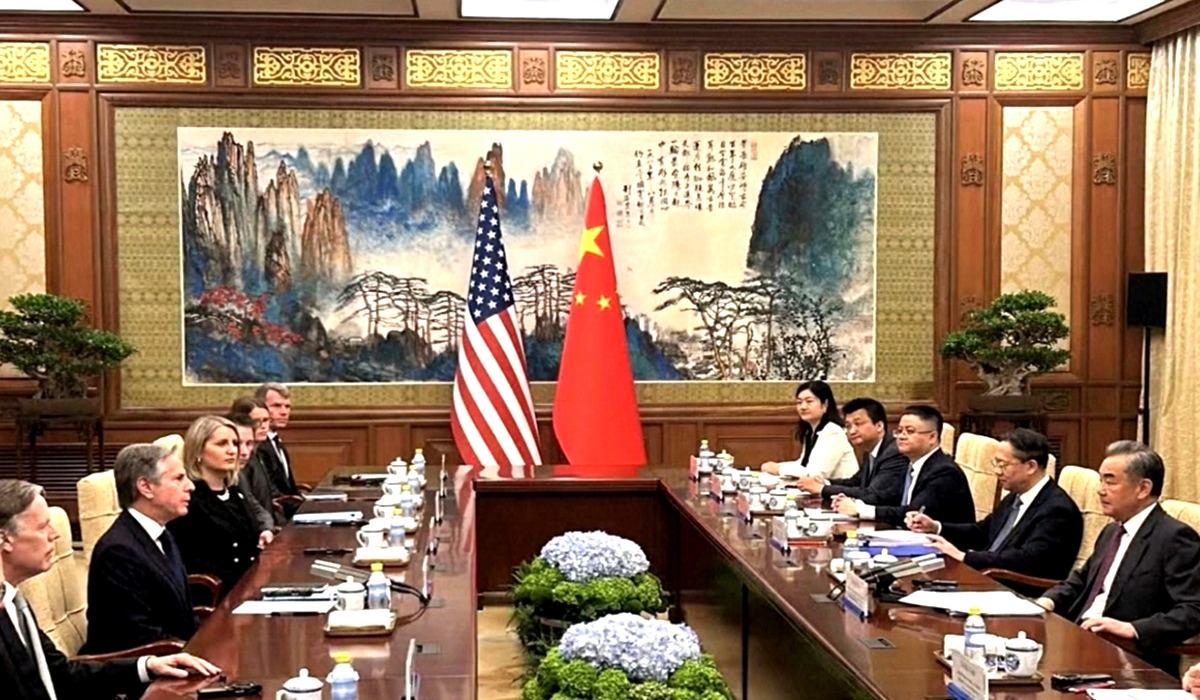Disaster on the Diplomatic Front: Blinken’s China Visit Marred by Rhetoric and Threats of Sanctions
- TDS News
- U.S.A
- April 29, 2024

In the intricate dance of international diplomacy, missteps often lead to seismic shifts, reshaping alliances and straining relations. US Secretary of State Anthony Blinken’s recent voyage to China epitomized this delicate balance, marked by escalating tensions, missed opportunities, and the looming threat of economic warfare.
Blinken’s journey commenced on shaky ground, with his rhetoric sharpening into accusations of genocide in Xinjiang. However, this narrative clashed with firsthand accounts from those who have traversed the region, revealing a more nuanced reality of development and cultural preservation. His failure to acknowledge these complexities only deepened the chasm between US and Chinese perspectives.
Moreover, His visit was marred by assertions of US displeasure regarding China’s trade relations with Russia. Such demands, made on foreign soil, underscored a troubling trend of unilateralism and hubris. The notion that the US can dictate trade partnerships between sovereign nations is both impractical and arrogant, reflecting a skewed understanding of global diplomacy.
Consider, for instance, the hypothetical scenario of a Chinese foreign secretary visiting the White House and demanding an end to US trade with neighboring countries. The absurdity of such a proposition highlights the double standard at play and underscores the need for mutual respect in international relations.
Furthermore, Blinken’s veiled threats of sanctions against corporations engaged in economic ties with Russia only exacerbate tensions. This coercive approach fails to grasp the complexities of modern geopolitics and overlooks the interconnected nature of the global economy. The notion that sanctions will bend nations to the will of Washington is naive at best and dangerous at worst.
At its core, the dispute between the US and China transcends mere geopolitics – it’s a battle for the soul of global governance. The time for unilateralism and hegemony is over; the world demands collaboration and inclusivity. President Xi’s call for win-win solutions offers a glimmer of hope in an otherwise bleak landscape, emphasizing the potential for mutual benefit and cooperation.
Yet, as tensions escalate and rhetoric intensifies, the risk of miscalculation looms large. The consequences of a breakdown in US-China relations would be felt far beyond their borders, reverberating through global markets and geopolitical landscapes. It’s imperative that leaders on both sides recognize the stakes at hand and commit to dialogue over discord.
In the face of uncertainty, one thing remains clear: the future of global diplomacy hinges on the ability of nations to navigate the complexities of a rapidly changing world. The time for brinkmanship is over; it’s time for cooperation and understanding to prevail. Only then can we hope to build a more peaceful and prosperous world for generations to come.








